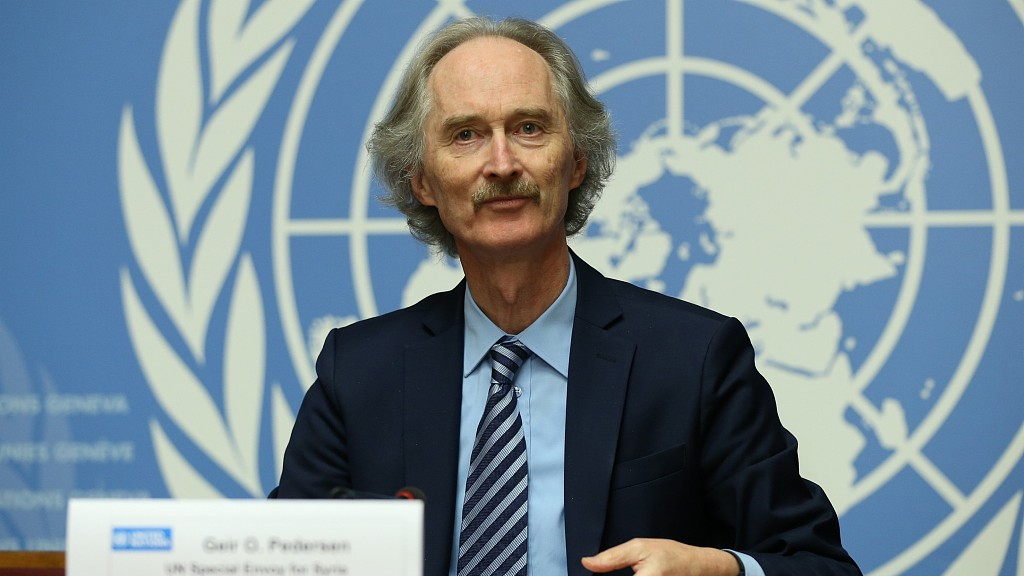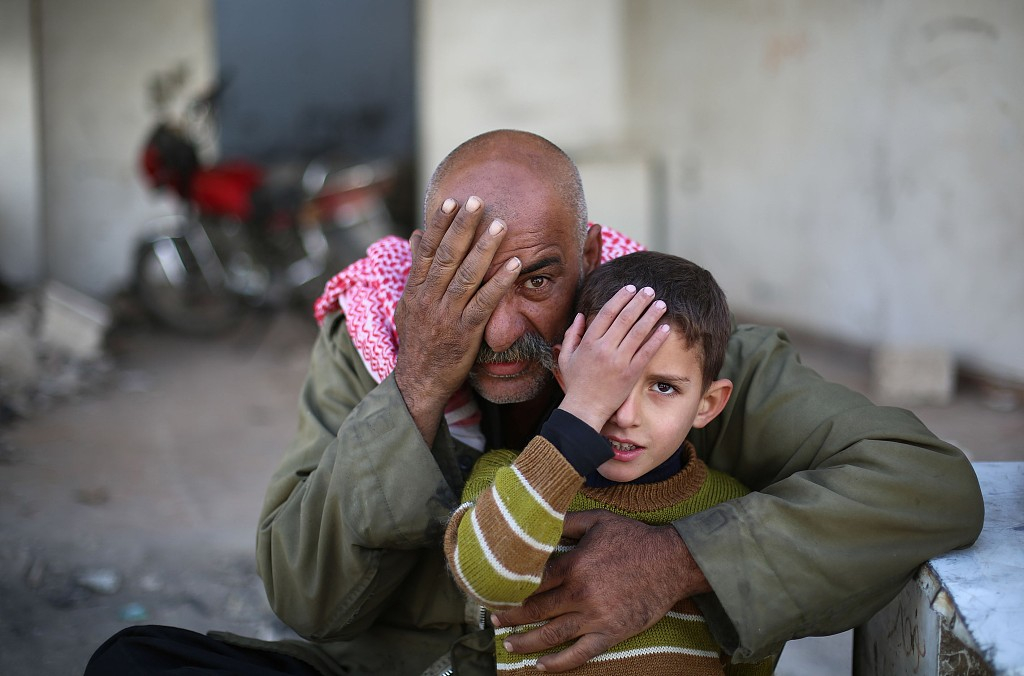
Before the first meeting of Syrian Constitutional Committee, United Nations (UN) Special Envoy for Syria Geir Pedersen holds a press conference in Geneva, Switzerland, October 28, 2019. /VCG Photo
Before the first meeting of Syrian Constitutional Committee, United Nations (UN) Special Envoy for Syria Geir Pedersen holds a press conference in Geneva, Switzerland, October 28, 2019. /VCG Photo
Editor's note: Andrew Korybko is a Moscow-based American political analyst. The article reflects the author's opinions, and not necessarily the views of CGTN.
The Syrian Constitutional Committee will finally launch on October 30 in Geneva as its delegates attempt to fulfill the complex task of carrying out UNSC Resolution 2254's mandated constitutional reform that was unanimously adopted on December 18, 2015.
The intervening four years saw the military aspect of this hybrid civil-international war coming to a close and the rise of the political peace process, which was largely enabled by the Syrian Arab Army liberating the country's vast majority with assistance of its Russian, Iranian, and Hezbollah anti-terrorist allies.
ISIL lost its al-Baghdadi, and many members of the armed opposition cut deals with government forces in order to allow the state's writ to return to the previously captured territories.
The national liberation process was a lengthy one that occasionally experienced its fair share of setbacks, but the overall trajectory of progress towards peace continued, which brings everything to the present moment, where 150 members of Syrian society are now gathering to discuss the way forward for their war-torn country. It was already difficult enough to assemble everyone in the first place, but now an even greater challenge awaits.
One of the reasons why the conflict has dragged on for so long is that each side wanted to achieve its goals in full. For Damascus, this entailed the restoration of state control over the entirety of its internationally recognized territory and a return to the pre-war political status quo, while the armed opposition wanted to carry out regime change against the democratically elected and legitimate authorities with the enormous assistance of their foreign patrons and demanded that the post-war state of affairs in their country be entirely revolutionized in order to make the state unrecognizable after the conflict finally ends.

In support of Syrian baby Kerim, who lost his left eye and his mother in an attack on a marketplace at Hammuriye district in besieged Damascus suburb of Eastern Ghouta of Syria, a Syrian man and a kid cover their eyes and pose for a photo in the same area, December 19, 2017. /VCG Photo
In support of Syrian baby Kerim, who lost his left eye and his mother in an attack on a marketplace at Hammuriye district in besieged Damascus suburb of Eastern Ghouta of Syria, a Syrian man and a kid cover their eyes and pose for a photo in the same area, December 19, 2017. /VCG Photo
Neither party was able to achieve their maximalist ends, hence the need for a grand compromise between them is necessary, but as the saying goes, "the devil's in the details."
It's too early to say exactly what the outcome of each compromise will be, but an educated guess suggests that some of the recommendations contained in the Russian-written draft constitution unveiled in January 2017 during the first meeting of the Astana peace process might be implemented, such as removing the word "Arab" from the country's current official name of the Syrian Arab Republic and granting socio-cultural autonomy to the Kurdish community.
Some of the main issues that will have to inevitably be addressed are the right of President Assad to stand for reelection, the relationship between the country's executive and legislative branches, the possibility of a bicameral parliament, whether or not the currently unitary state should decentralize or even federalize, and the political status of the northern parts of the country still under the foreign occupation of the Turkish and American militaries (which is directly related to the previously mentioned point about the future of the nominally unitary state).
However these issues are resolved, they must be decided solely by the 150 Syrians that comprise the Constitutional Committee without any foreign interference whatsoever.
The Astana guarantor countries of Russia, Turkey, and Iran, as well as the UN, have pledged to do their utmost to ensure that this is the case, though the continued illegal presence of the American military in northeastern Syria (especially around its oil fields) might make this impossible in practice since Washington's shadow still hangs heavy over the entire process.
The way forward is for all the Syrian representatives – particularly those from, or speaking on behalf of the people, the occupied territories – to put any foreign loyalties aside and unite as a patriotic whole that's dedicated to making the tough compromises to finally bring peace to their millennia-old civilization-state.
The Syrian Constitutional Committee is a promising step towards peace in spite of the still-formidable challenges ahead because its very formation proves that there's the political will on all sides to finally end the war in a way that meets at least some of the interests of each legitimate party to the conflict.
(If you want to contribute and have specific expertise, please contact us at opinions@cgtn.com)